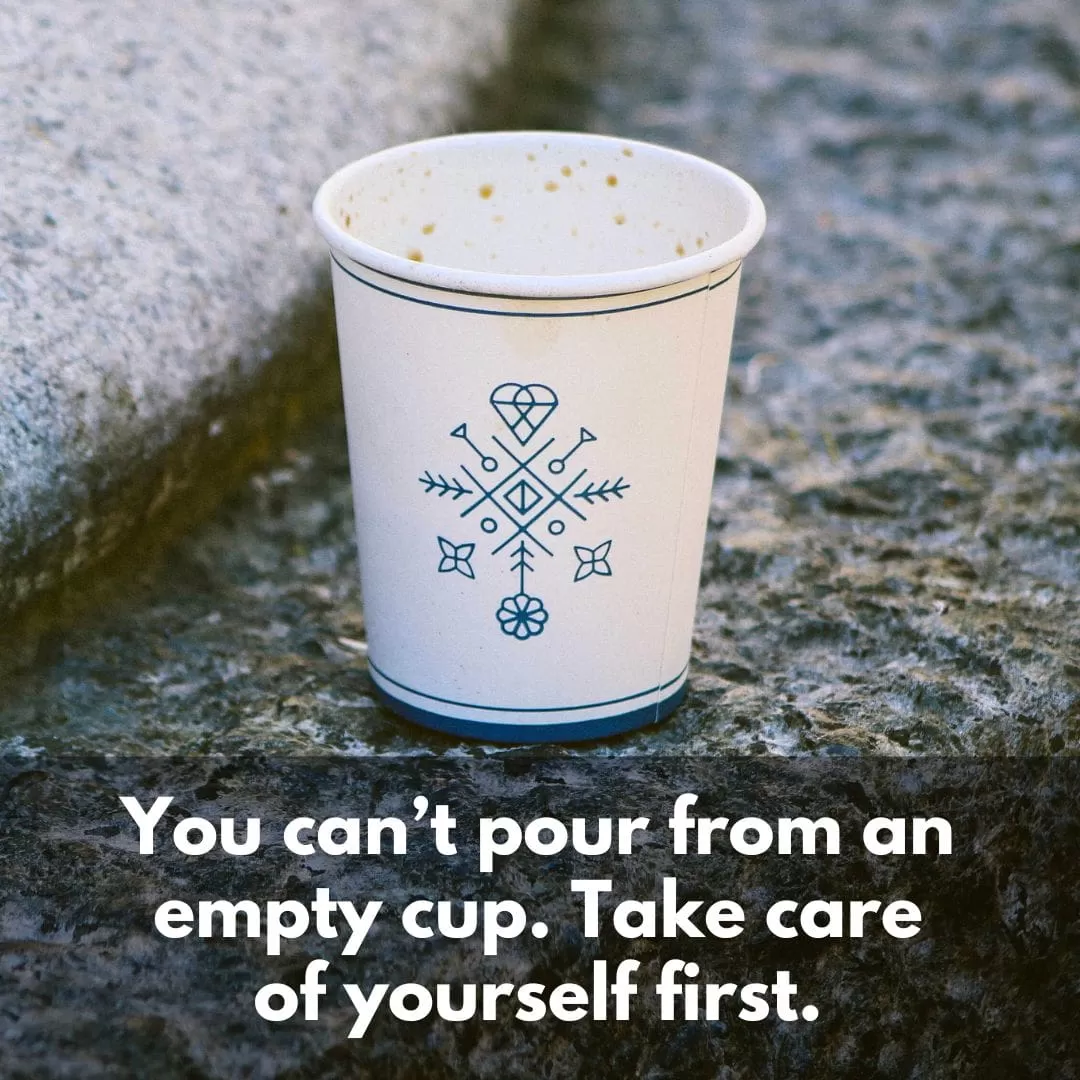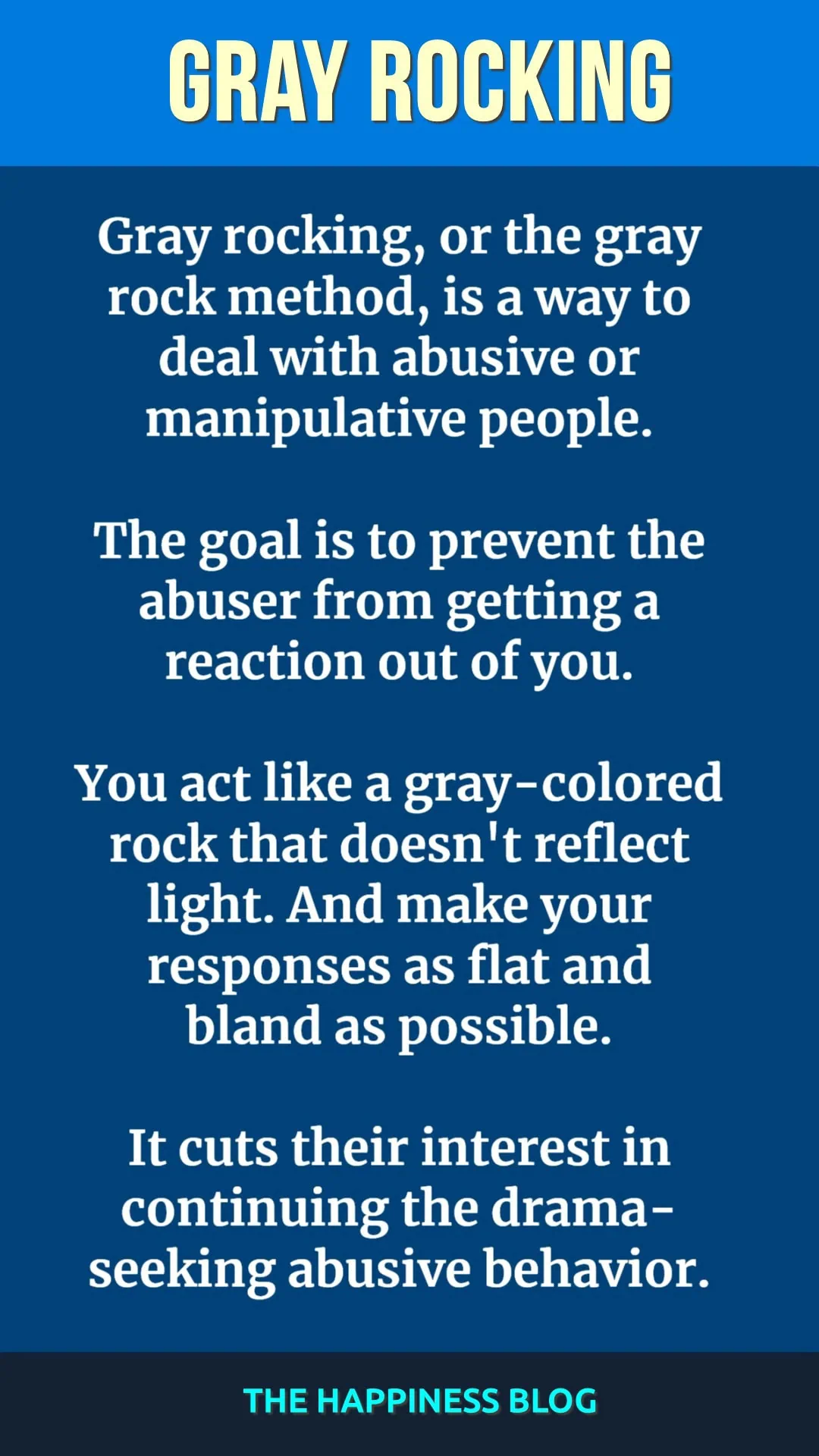Today's Monday • 8 mins read
— By Dr. Sandip Roy.
Marriages take constant work and commitment. But when one partner is a narcissist, both those things become extremely one-sided.
Narcissists, out of their unfeeling self-centeredness, expect non-stop attention, service, and praise. The victim becomes a constant “giver,” sacrificing her mental peace and physical rest.
Still, it is possible to stay married to a narcissist. The key would be to change yourself, instead of trying to get your narcissist to change.
For starters:
- You may need to lower your expectations of them.
- You may need to inform them that you’ll stop talking if they don’t admit their mistakes.
- And you’ll have to put your own health and happiness ahead of always looking out for theirs.
10 Practical Tips On How To Stay Married To A Narcissist
Narcissism in marriage cannot be entirely handled with patience and forgiveness.
Narcissistic partners don’t learn by themselves. They must be taught how to behave well and share the responsibilities as in regular marriages.
Here are 10 strategies:

1. Set Hard Boundaries (And Mean It)
Narcissists will steamroll you if you let them. You have to set strict boundaries with them.
Boundaries define our limits of what is acceptable behavior from others. Narcissists assault our personal space, mental peace, and emotional well-being if we don’t set boundaries with them.
Decide and declare what you will not tolerate, like late-night tantrums, endless demands, or personal assaults just because you asked them to do something.
Then stick to those boundaries. Consistency is your weapon.
They won’t like it, but they’ll learn you’re not their doormat.
2. Stop Feeding The Ego Machine
They crave praise like oxygen. Don’t give it unless they earn it.
Give them a simple “Good job” for their actual effort. That’s all.
Not a flood of compliments that they’ll snort up to feel more entitled, and then demand more the next time.
Starve the beast a little, without remorse.
3. Carve Out Your Own Space
They’ll drain you dry. And you can’t pour from an empty cup.

Claim time for yourself. Make space for a hobby or two, time with friends, or a locked door with ‘Do Not Disturb’ for a few hours if you have to.
They’ll most likely sulk, but rise above the guilt they try to inject in you.
Your me-time for your well-being, peace, and cleaning up the mental clutter is worth it.
4. Make Them Face Consequences
Narcissists dodge accountability like it’s a plague.
They don’t own up to the blame for their mistakes because doing so would mean:
- one, they are not as flawless as they always claim, and
- two, now they have to make efforts to change themselves.
What do you do? First, if they mess up, don’t fix it for them.
Say, they blow the month’s budget on a shiny pair of trendy shoes, don’t cut your regular expenses for them.
Let them feel the pinch. It’s the only way they might think twice next time.
5. Master The Art of Gray Rocking
When they’re fishing for an emotional drama, you go dull.
As much as you need to, stay quiet and give them short answers with no emotion or fuel. “Huh, okay.” “That’s interesting.”
They hate it when you don’t play their game, but you get your peace. Gray rocking is like starving a fire.

6. Quit Explaining Yourself
They’ll twist your words into knots to win every argument. Narcissists are masters of word salad.
Stop justifying your feelings or choices—just state them and move on.
They don’t need a roadmap to your dreams, long-term goals, or your secret garden.
7. Pick Battles You Can Win
Fighting over their every selfish move is a losing war.
Save your energy for the big stuff—like money or kids—and let the small crap slide.
It’s not surrender; it’s strategy.
8. Mirror Their Behavior (Subtly)
Give them a taste of their own medicine.
If they interrupt, interrupt back. If they demand, demand something too.
They won’t like it, and may even complain you are mirroring them.
And you could explain it as, “Since you do it all the time, I thought that’s the way to do it. Tell me, is it right when you do it, but wrong when I do it?”
That might jolt them awake and make them stop.
9. Document Everything
They’re masters at rewriting history. This is gaslighting.
Gaslighting is a form of psychological manipulation used to make someone feel confused or crazy. The gaslighter lies and fakes facts to make their victim question their own perception of reality, memories, or sanity.

To counter it, keep records. Save receipts, texts, emails, and notes of what they said. When they gaslight you, you’ve got proof you’re not losing your mind (as they claim).
10. Get Backup
You’re not a sacrificial sheep.
Stop overcommitting yourself to the service of your narcissist. Stop walking on eggshells around them. Stop, and pay attention to the you in you.
Narcissists pride themselves on isolating you—don’t let them. Build your lifeline outside their presence.
Therapy, a trusted friend, or even a lawyer on speed dial can keep you grounded.

Getting Professional Help
- When to Seek Counseling: If your narcissistic partner is emotionally or physically abusive, don’t wait. Get counseling immediately. Even if it’s not that bad yet, therapy can still cut down the burden of living to satisfy their ego.
- How to Find the Right Therapist: You need a therapist who knows narcissistic relationships and has dealt with couples like you. Some offer a free session or two; use that to see if they click with you both. Try online therapists, if it’s okay with you.
- Solo Therapy Sessions: Solo sessions allow the therapist to reach out to you without the narcissist spouse interrupting or blocking you. The narcissist doesn’t get to twist your words, present you as the prime offender, or even gaslight the therapist. Solo sessions help you see who’s responsible for the broken parts in your relationship, teach you how to talk without being defensive, and set solid boundaries.
- Bottom Line: Therapy is not a magic fix for tolerating your narcissist’s behaviors. Still, counseling helps when you’re stuck with a narcissist. A good therapist can help you see what’s worth fighting for, where to draw the line, and what to let go of.
How To Keep Your Self-Worth When With A Narcissist
Living with a narcissist grinds your self-worth down. Here’s how to claw it back.
- Build Self-Confidence: You need a spine of steel to survive a narcissist. Never lose sight of the good things about yourself. Write down what you did well in the past, and read them when your narcissist is tearing down your confidence. Do stuff that doesn’t revolve around them, like taking a solo trip or joining a hobby group. Stick with people who breathe life into you, friends or family, whoever’s got your back. They are your armor against low self-esteem.
- Stop Tolerating Their Abuse: Narcissists emotionally abuse in many ways to make people more submissive: belittling, name-calling, shaming, gaslighting, and shouting. Spot it for what it is, but don’t let their garbage stick to you. Stop being their punching bag. Demand respect. Tell them they can’t cross certain lines of behavior and be firm about it. Talk to a trauma-informed therapist or a counselor experienced in narcissistic relationships.
- Handle Their Jealousy: They’re jealous, clingy, and paranoid. Narcissists see almost anyone close to you as a romantic rival. If they think you’re cheating, they might hurt you or cut off all your social interactions. Tell them straight about your boundaries. Don’t let their insecurity run your life. If their jealousy suffocates your freedom, consult a therapist or a group to find a way out.
- Recognize Love Shows: Narcissists will overload you with gestures of love to reel you in: gifts, sweet talk, all that jazz. It’s a trap, not a heart. Don’t buy it wholesale. Go slow, watch for the catch. If your gut’s screaming, listen. Red flags don’t lie.
- Find Closure: Dumping a narcissist is a slog. Closure’s your ticket out. Lean on a therapist or group to unpack the mess. Scribble your thoughts in a journal—get it out of your head. Focus on yourself—growing, healing, not their drama. You deserve better than their chaos. Grab help when you need it.
Final Words
Staying married to a narcissist is a difficult task.
- First, narcissism is a personality disorder that may be treated, but cannot be cured. So, don’t fool yourself into thinking you can fix your narcissist.
- Second, despite the relationship, don’t give up on yourself. Don’t get caught up in the narcissist’s drama and neglect your own needs.
- Third, they will violate your boundaries and break every rule you set for them. Take action each time they violate your boundary. Do not let the narcissist control the relationship.
√ Also Read: How To Leave A Narcissist, With No Money (And Be Free)
√ Please share this with someone.
» You deserve happiness! Choosing therapy could be your best decision.
...
• Disclosure: Buying via our links earns us a small commission.
